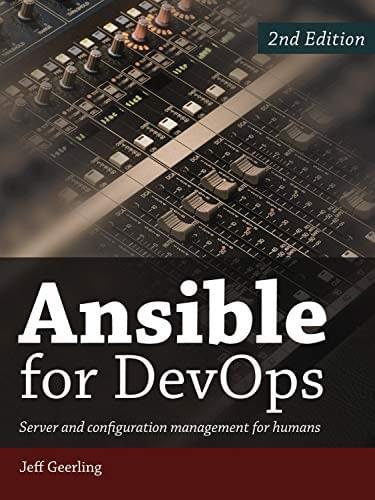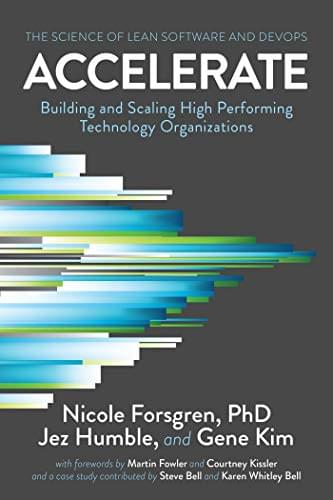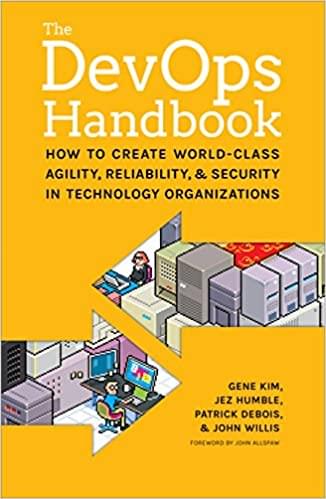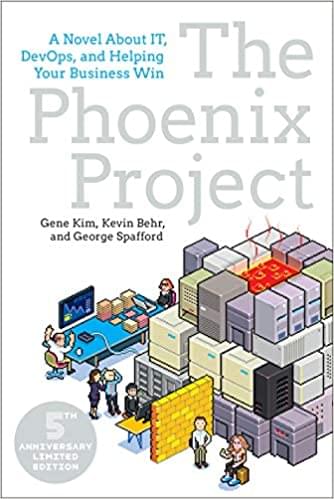DevOps Online Courses

Learn DevOps: CI/CD with Jenkins using Pipelines and Docker
 Edward Viaene
Edward Viaene- 4.23
- 4.5 hrs
- 52 lectures
Use Jenkins the DevOps way. Automate your Jenkins jobs by using Jenkins Pipelines, Docker, and the Jenkins Job DSL Learn more »
DevOps: CI/CD with Jenkins pipelines, Maven, Gradle
 TetraNoodle Team
TetraNoodle Team- 4.24
- 3.5 hrs
- 30 lectures
Build continuous integration, continuous delivery and DevOps pipelines with Java, Gradle, Maven, Artifactory & Sqitch. Learn more »
Learn DevOps: Docker, Kubernetes, Terraform and Azure DevOps
- 4.5
- 21 hrs
- 229 lectures
DevOps for Absolute Beginners: Azure DevOps, Docker, Kubernetes, Jenkins, Terraform, Ansible - AWS, Azure & Google Cloud Learn more »
DevOps MasterClass : Terraform Jenkins Kubernetes Ansible
 LevelUp360° DevOps
LevelUp360° DevOps- 4.32
- 61.5 hrs
- 437 lectures
DevOps with Jenkins Terraform AWS Docker Swarm Maven Kubernetes GIT & Ansible Automation with DevOps Realworld Exercises Learn more »
Devops Fundamentals - CI/CD with AWS +Docker+Ansible+Jenkins
 Rahul Shetty
Rahul Shetty- 4.47
- 9 hrs
- 58 lectures
Step by step Practical course to Automate Continuous Integration/Delivery process with Ansible,Jenkins,GIT,Docker on AWS Learn more »
Learn Devops: Continuously Deliver Better Software
 Edward Viaene
Edward Viaene- 4.46
- 4.5 hrs
- 74 lectures
Excel in delivering and deploying software using Git, Vagrant, Chef, Ansible, Jenkins, Docker, and Kubernetes Learn more »
Devops Tools and AWS for Java Microservice Developers
 Bharath Thippireddy
Bharath Thippireddy- 4.69
- 20.5 hrs
- 286 lectures
Master Docker , Kubernetes, Maven, Jenkins ,GIT , AWS EC2 ,Elastic Beanstalk,ELB,Auto Scaling and more in easy steps Learn more »
Recommended books
DevOps books
Ansible for DevOps
Ansible is a simple, but powerful, server and configuration management tool (with a few other tricks up its sleeve). This book will help those familiar with the command line and basic shell scripting start using Ansible to provision and manage anywhere from one to thousands of servers. Learn more »
Accelerate
Readers will discover how to measure the performance of their teams, and what capabilities they should invest in to drive higher performance. This book is ideal for management at every level. Learn more »
The DevOps Handbook
The DevOps Handbook digs into the three foundational principles underpinning DevOps known as The Three Ways: Flow, Feedback, and Continual Learning and Experimentation. Learn more »
The Phoenix Project
Bill, an IT manager at Parts Unlimited, has been tasked with taking on a project critical to the future of the business, code named Phoenix Project. But the project is massively over budget and behind schedule. The CEO demands Bill must fix the mess in ninety days or else Bill's entire department will be outsourced. Learn more »











